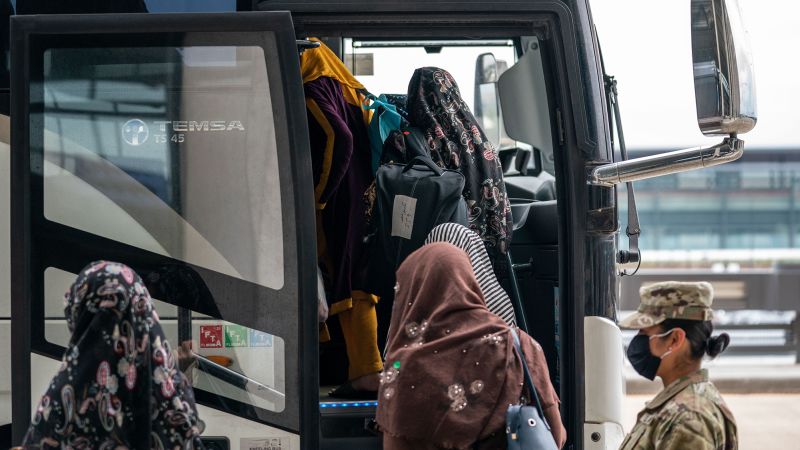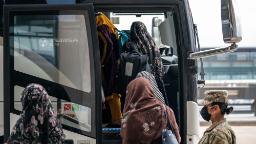

CNN
—
The Biden administration on Thursday unveiled a new program to allow groups of private citizens to sponsor refugees from around the world to live in the United States.
The program, called the Welcome Corps, was billed by US Secretary of State Antony Blinken as “the boldest innovation in refugee resettlement in four decades.”
Under the program, groups of at least five individuals can apply to sponsor refugees and help them acclimate to life in the US, with the help of a consortium of non-profit resettlement organizations.
The sponsor groups must raise a minimum of $2,275 per refugee, but they will not be required to provide ongoing financial support to the refugees they sponsor.
That initial amount goes to “provide the initial support for the refugees during their first three months in the country,” a senior State Department official said Thursday, noting that money goes toward things like apartment security deposits, clothing and furniture.
“The goal is for the refugees to become self-reliant as quickly as possible,” the official said.
Julieta Valls Noyes, the assistant secretary of state for population, refugees and migration, said that the program requires groups of at least five people, rather than one person who might be able to raise the minimum amount, because the work to help the sponsored refugees is “a lot more than what the average American can do” alone.
“It’s not about money. It’s about commitment. It’s about the community. It’s about bringing people together and forming a group so that the refugees have more than one person that they can refer to and can work with,” she said at a State Department briefing Thursday.
“It’s a lot of work involved in sponsoring a refugee – finding schools, helping them find affordable housing, getting their kids signed up for school, helping them find jobs, showing them where the pharmacy is, what bus to take. It’s a lot more than what the average American can do. And so we think that providing a group of five or more Americans is more likely to be successful,” Valls Noyes said.
She said the groups could be “from all walks of life, including community volunteers, faith and civic groups, veterans, diaspora communities, businesses, colleges, universities.”
The senior State Department official noted that “all refugees being supported by private sponsors will be cleared through the same extensive security vetting required for all refugees admitted to the United States.”
The sponsors will be screened, vetted and approved through the consortium of non-profits, which is receiving funding from the State Department. The sponsors will have to provide a detailed “welcome plan” laying out how they plan to receive the refugees and connect them to housing, jobs and schools.
“The consortium will also provide training to the sponsors before they begin their sponsorship,” and will “check in regularly” with the sponsors and refugees, the official said.
“There are many, many checkpoints, many, many fail-safes, vetting, all that is part of this program to prevent any abuses. That said I think we’re really excited about the program; we think it’s going to be really successful,” they said.
Refugee admissions to the US have plummeted in recent years after former President Donald Trump slashed the refugee cap to historic lows. Although the Biden administration has raised the cap to 125,000 for the past two fiscal years, the admissions last year and thus far this year have fallen far short of that.
“In the program’s first year, our goal is to mobilize at least 10,000 Americans to step forward as private sponsors and offer a welcoming hand to at least 5,000 refugees from around the world,” Blinken said in a statement Thursday.
The Welcome Corps program is distinct from other programs unveiled by the Biden administration’s Department of Homeland Security to allow individuals to sponsor refugees from Ukraine and Venezuela.
“In those programs, sponsors need to show that they can support the parolees financially during a two year parole period. The Welcome Corps, on the other hand, will enable private sponsors to support refugees from all nationalities who are being permanently resettled in the United States … and who ultimately may, and in many cases I am confident, will become US citizens,” the senior State Department official said.
